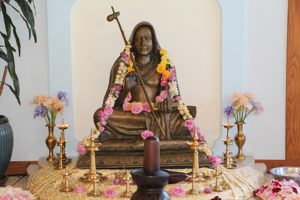Adi Shankara Personality Type
8th-century Hindu philosopher and theologian
Adi Shankara (8th cent. CE), also called Adi Shankaracharya (Sanskrit: आदि शङ्कर, आदि शङ्कराचार्य, romanized: Ādi Śaṅkarācāryaḥ, lit. 'First Shankara', [aːdɪ ɕɐŋkɐraːtɕaːrjɐh]), was an Indian Vedic scholar and teacher (acharya), whose works present a harmonizing reading of the sastras, with liberating knowledge of the self at its core, synthesizing the Advaita Vedanta teachings of his time.Due to his later fame, over 300 texts are attributed to his name, including commentaries (Bhāṣya), introductory topical expositions (Prakaraṇa grantha) and poetry (Stotra). However most of these are likely to be by admirers or pretenders or scholars with an eponymous name. Authentic are the Brahmasutrabhasya, his commentaries on ten Mukhya (principal) Upanishads, his commentary on the Bhagavad Gita, and the Upadesasahasri. The authenticity of Shankara being the author of Vivekacūḍāmaṇi has been questioned.The central postulation of Shankara's writings is the identity of the Self (Ātman) and Brahman, defending the liberating knowledge of the Self, taking the Upanishads as an independent means of knowledge, against the ritually-oriented Mīmāṃsā school of Hinduism. Shankara's Advaita shows influences from Mahayana Buddhism, despite Shankara's critiques; and Hindu Vaishnavist opponents have even accused Shankara of being a "crypto-Buddhist," a qualification which is rejected by the Advaita Vedanta tradition, highlighting their respective views on Atman, Anatta and Brahman.Shankara has an unparallelled status in the tradition of Advaita Vedanta, but his influence on Hindu intellectual thought has been questioned.

